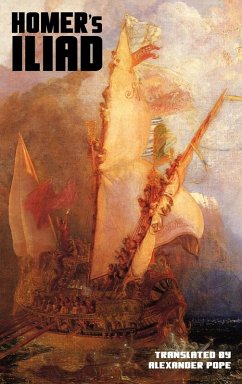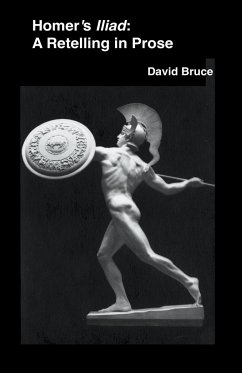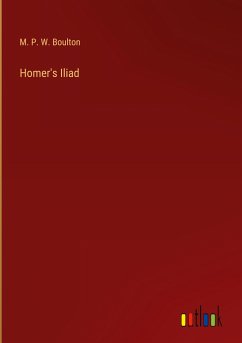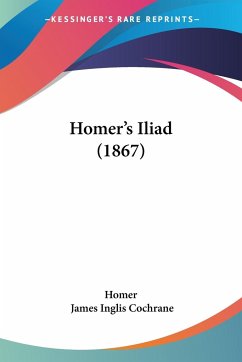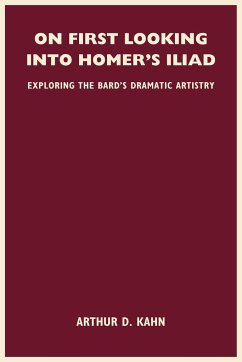
ON FIRST LOOKING INTO HOMER'S ILIAD
EXPLORING THE BARD'S DRAMATIC ARTISTRY
Versandkostenfrei!
Nicht lieferbar
"I enjoy Homer in his own language. I thank on my knees, him who directed my early education, for having put into my possession this rich source of delight, and I would not exchange it for anything which I could then have acquired, and have not since acquired." -Thomas Jefferson It is an extraordinary phenomenon of Western literary history that European literature originates with two epics that continue to excite admiration after nearly three millennia. Those who must content themselves with reading the epics in translation, of course, cannot hope to share fully the unfailing delight experienc...
"I enjoy Homer in his own language. I thank on my knees, him who directed my early education, for having put into my possession this rich source of delight, and I would not exchange it for anything which I could then have acquired, and have not since acquired." -Thomas Jefferson It is an extraordinary phenomenon of Western literary history that European literature originates with two epics that continue to excite admiration after nearly three millennia. Those who must content themselves with reading the epics in translation, of course, cannot hope to share fully the unfailing delight experienced by such a fluent master of ancient Greek as Thomas Jefferson and may be tempted to dismiss as hyperbolic his pronouncement: "Homer the first of poets, as he must ever remain." Like the plays of Shakespeare and other monuments of Western literature, Homer's Iliad is a work of inexhaustible richness and complexity in which every verse impels the action, deepens the characterizations and contributes to the psychological opulence within a tapestry of recurring images and themes in a masterly interweaving of past, present and future within a skillfully evolved architecture. In the last centuries poets in every generation have sought to recapture the wonderment of the epics by producing new translations. In On First Looking into Homer's Iliad, the author of the highly praised The Education of Julius Caesar invites readers to explore book by book and often line by line the complex artistry of the epic portrayal of men at war. He is confident that after such an investigation readers will be receptive to Jefferson's enthusiastic judgment.





